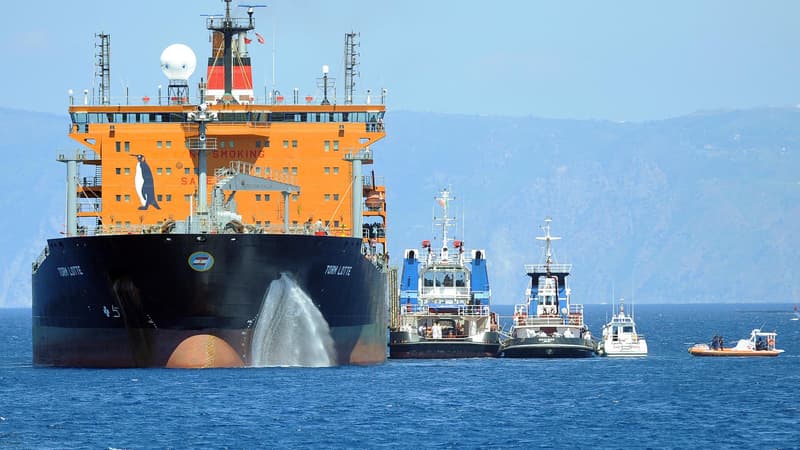Attacks on commercial and military ships in the Red Sea by the Houthi rebels still have limited economic consequences, according to experts, as long as the crisis does not last… However, tensions are already being felt in the supply of companies, while the specter of the threat of the return of high inflation.
• 12% of world trade
Attacks on transport ships have increased in recent weeks between Africa and Yemen. About 12% of global maritime trade normally passes through the Bab al-Mandeb Strait, which controls access to the southern Red Sea, but since mid-November container numbers have fallen by 70%, maritime experts say.
Many shipowners preferred to interrupt their traffic in this area by an alternative route around the South African Cape of Good Hope, which was longer and more expensive.
This Wednesday, three of the main Japanese shipping companies confirmed that they were suspending the transit of all their cargo through the Red Sea.
To add insult to injury, another region of the world is affected, this time by climate risks. The drought affecting the Panama Canal has significantly slowed ship transit between Asia and the United States. Although about forty container ships normally pass through there each day, this figure was reduced in mid-January to 24 daily passages.
Tensions have further risen with Anglo-American attacks in Yemen targeting the Houthis, followed by their responses.
• Disruptions in the supply chain
Several companies have already announced delays, such as the Swedish furniture giant Ikea. “The situation in the Suez Canal will cause delays,” the company explains in an email to AFP.
Car production is also disrupted. Tesla thus specified that its production would be suspended for two weeks at its European factory, between January 29 and February 11.
The Volvo factory in Ghent (Belgium) also had to be closed for three days in mid-January due to a lack of gearboxes, whose delivery was delayed due to “readjustments in sea routes.”
Suzuki’s factory in Esztergom, Hungary, will remain closed until January 21 due to a delay in the delivery of engines imported from Japan.
Michelin factories in Spain are also affected by supply problems, Reuters reports.
In Spain, the Association of Manufacturing and Distribution Companies (Aecoc) announced that several sectors had launched pre-orders for certain raw materials and goods, such as furniture or textiles, for which they are experiencing supply difficulties.
Finally, the transportation of liquefied natural gas (LNG) “will be affected” by the escalation in the Red Sea, Qatari Prime Minister Mohammed bin Abdulrahmane Al-Thani said Tuesday during the World Economic Forum in Davos.
• +0.7 points of additional inflation in the world?
Shipping companies have made significant price increases to cover costs related to the crisis. One of the benchmark indicators for measuring the cost of freight for goods transported from China, the Shanghai Content Freight Index (SCFI), has more than doubled in a month.
The additional cost in terms of fuel is around 20%, according to the logistics platform Container xChange, which estimates that the crisis in the Red Sea could increase maritime transport costs by 60%, with an additional premium of around 20% for shipowners’ insurance. .
This raises the specter of renewed inflation. These fears were assessed by the international firm Oxford Economics at an additional 0.7 points of global inflation by the end of 2024, “in the event” the Red Sea was closed to ships for several months and transport costs remained around double the December price. .
The day before, the European Commissioner for the Economy, Paolo Gentiloni, had warned: “What is happening in the Red Sea seems, for the moment, to have no consequences on energy prices and inflation. But we think: “We must continue this very closely because these consequences could materialize in the coming weeks.”
“We must remember that traffic is not completely interrupted,” says Ano Kuhanathan of Allianz Trade. But “the inflationary risk could be significant.”
Source: BFM TV


